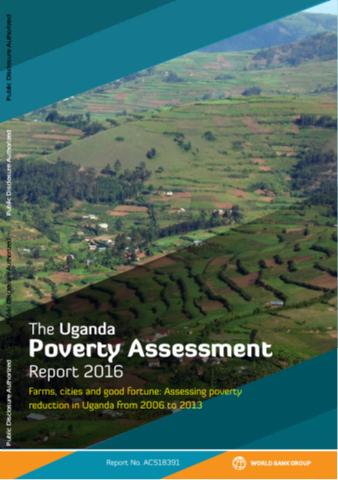Resource information
Uganda’s progress in reducing poverty from 1993 to 2006 is a remarkable story of success that has been well told. The narrative of Uganda’s continued, albeit it slightly slower, progress in reducing poverty since 2006 is less familiar. This was a period in which growth slowed as the gains from reforms years earlier had been fully realized, and weak infrastructure and increasing corruption increasingly constrained private sector competitiveness (World Bank 2015). This report examines Uganda’s progress in reducing poverty, with a specific focus on the period 2006 to 2013. The report shows that high growth from 2006 to 2010 benefited poverty reduction. Before turning in further detail to the key findings of the report, it is important to note that the analysis undertaken in this report is only possible because the Government of Uganda has invested in a high quality series of household surveys to document progress in wellbeing since 1993. The Uganda Bureau of Statistics has conducted high-quality household surveys that every three to four years that have provided a comparable series of data on poverty and other household characteristics for the last twenty years. Uganda is one of the few countries in the region to have achieved this level of comparable, frequent poverty monitoring over time. Without this, it would not be possible to document the lessons Uganda provides.


